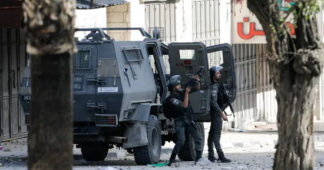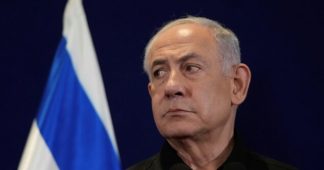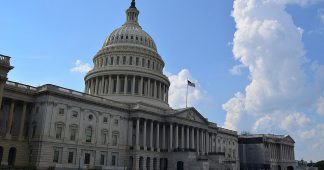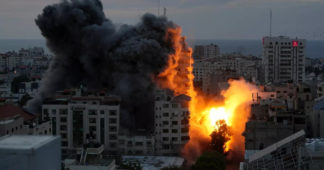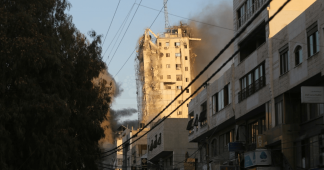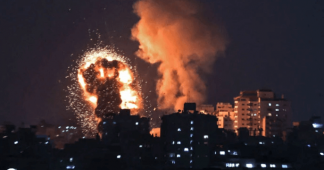The internalization of the far-right minister’s ‘Decisive Plan’ is evident in the popular support for a new ultimatum for Gaza: emigration or annihilation.
By Orly Noy*
November 10, 2023
Six years ago, Bezalel Smotrich, then a young Knesset member in his first term, published his “Decisive Plan” — a kind of “endgame” for the Israeli-Palestinian conflict. According to the far-right lawmaker, who now serves as Israel’s finance minister and the government’s West Bank overlord, the inherent contradiction between Jewish and Palestinian national aspirations does not allow for any kind of compromise, reconciliation, or partition. Instead of maintaining the illusion that a political agreement is possible, he argued, the issue must be unilaterally resolved once and for all.
The plan makes only passing references to Gaza, with Smotrich seeming content with Israel’s encagement of the enclave as an ideal solution to what he calls the “demographic challenge” posed by Palestinians’ very existence. Vis-à-vis the West Bank, however, he calls for annexing its entirety.
In the latter territory, demographic concerns will be ameliorated by offering the 3 million Palestinian residents a choice: to renounce their national aspirations and continue living on their land in an inferior status, or to emigrate abroad. If, instead, they choose to take up arms against Israel, they will be identified as terrorists and the Israeli army will set about “killing those who need to be killed.” When asked at a meeting, in which he presented his plan to religious-Zionist figures, if he also meant killing families, women, and children, Smotrich replied: “In war as in war.”
Insofar as it has received any public attention at all, the Decisive Plan has been perceived since its publication as delusional and dangerous even among mainstream Israeli political commentators. Yet an examination of the current Israeli media and political discourse shows that, when it comes to the army’s current assault on Gaza, large parts of the public have completely internalized the logic of Smotrich’s plan.
In fact, Israeli public opinion regarding Gaza, where Smotrich’s vision is being implemented with a cruelty that even he may not have foreseen, is now even more extreme than the text of the plan itself. That’s because, in practice, Israel is removing from the agenda the first possibility on offer — of an inferior, de-Palestinianized existence — which until October 7 was most Israelis’ chosen option.
Emigration or annihilation
The utter astonishment at Hamas’ brutal attack, and the refusal to understand it in the context of decades of oppression, reflect an Israeli position that genuinely wonders why the Palestinians did not cling to their status as prisoners in Gaza, say thank you for Israel’s generosity in allowing a few thousand people to work for minimal wages on the lands from which their families were expelled, and bring their occupiers flowers.
Indeed, how many Israelis care about the situation in Gaza so long as Palestinians are not firing rockets or breaching the fence to enter our communities? Who bothered to ask what “calm” looks like in the besieged enclave? As far as most Israeli Jews are concerned, the more than 2 million Palestinians in Gaza should have kept their mouths shut and embraced their starvation. But today, even this option is no longer satisfactory, leaving Israelis to rally behind a new ultimatum for Gaza: emigration or annihilation.
In the current discourse, emigration is often presented as a humanitarian consideration, generously allowing Palestinian civilians to leave the area of hostilities. In reality, around three-quarters of Gaza’s population have been forcibly displaced since October 7, mainly from the north, and the Israeli army continues to bomb them in all parts of the Strip.
Alternatively, emigration is proposed in the form of plans for mass transfer of Palestinians out of the Strip, which are being seriously considered by senior Israeli officials and policymakers. For significant parts of the Israeli public, Palestinians are easier to move than furniture in a living room.
Given that expelling Gaza’s population makes perfect sense to most Israelis, the Palestinians’ refusal to submit to the might of the Israeli regime is perceived as an existential threat and a sufficient reason for their annihilation. It is true that Hamas’ horrific October 7 massacres in civilian communities violated what ought to be the scope of legitimate resistance to oppression, but the vast majority of Israelis were totally fine with snipers killing and maiming Palestinians who demonstrated en masse at the Gaza fence during the Great March of Return. In their eyes, no form of protest against the occupation is legitimate.
It is not only Smotrich’s logic that has settled in the public’s heart since October 7, but also his rhetoric. In his introduction to the Decisive Plan, Smotrich writes: “The statement that ‘terrorism derives from despair’ is a lie. Terrorism derives from hope — a hope to weaken us.” The Israeli public has similarly embraced the severing of the link between terrorism on the one hand and despair and struggle on the other; in the current climate, any attempt to even mention this connection is immediately denounced as justifying Hamas’ crimes.
The terrifying Smotrichization of the Israeli public is embodied in the total willingness to sacrifice the lives of every last Palestinian in Gaza for the ultimate victory that the far-right minister promised in his plan. It is the terrifying indifference to the astronomical number of dead children, and the complete internalization of the idea that any thought of struggle and freedom on the other side of the fence must be extinguished, no matter the human cost.
This process will not stop and cannot be stopped at the Gaza fence. Smotrich’s logic is already seeping into the state’s approach toward its own Palestinian citizens, who have been facing levels of persecution and repression that recall the military regime of 1949-66. It is no coincidence that this community’s voices are almost completely absent from the public sphere these days; they are subject to arrests and indictments for simply asserting their national identity.
In a country where posting a video of shakshuka next to a Palestinian flag leads to incarceration, the process of Smotrichization and internalization of its “decisive” logic has already been completed. The implications of this for the possibility of rehabilitating Israel’s ailing society after the war, and re-laying the foundations for the struggle for a shared society, are hard to even imagine.
A version of this article first appeared in Hebrew on Local Call. Read it here.
We remind our readers that publication of articles on our site does not mean that we agree with what is written. Our policy is to publish anything which we consider of interest, so as to assist our readers in forming their opinions. Sometimes we even publish articles with which we totally disagree, since we believe it is important for our readers to be informed on as wide a spectrum of views as possible.
